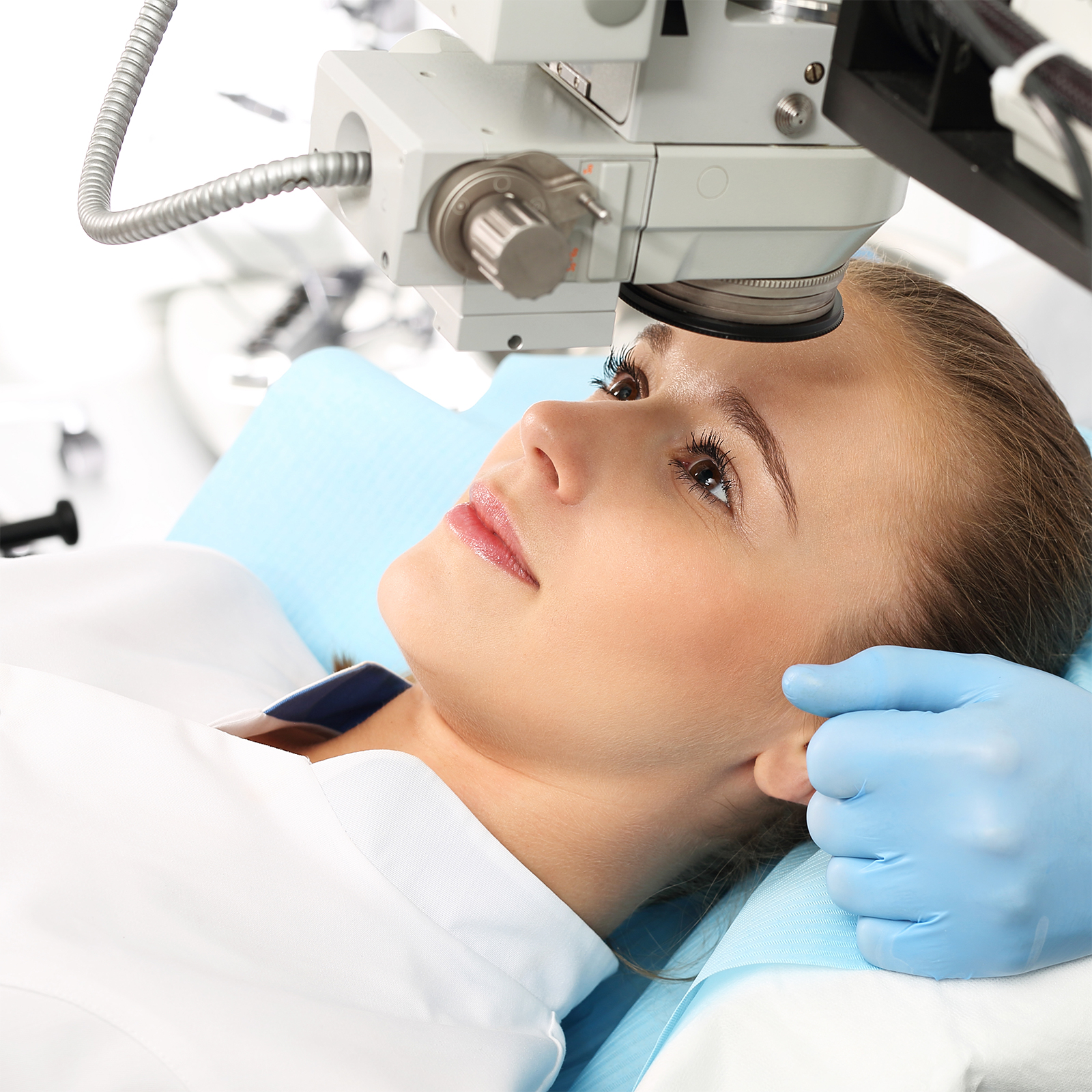
LASIK works by using a laser to reshape the cornea, the clear front part of the eye, so that it can better focus light onto the retina at the back of the eye. During the procedure, your LASIK surgeon creates a thin flap on the cornea, which is then lifted to expose the underlying tissue. The laser is then used to remove some of the tissue, reshaping the cornea to the desired curvature. The flap is then repositioned, acting as a natural bandage, allowing the eye to heal without stitches. This reshaping of the cornea corrects refractive errors, such as nearsightedness, farsightedness, and astigmatism, resulting in clearer vision with reduced dependence on glasses and contact lenses.
The recovery period for LASIK is typically brief. Although the exact time varies from patient to patient, you can expect to see improved vision and return to work within a couple of days. It will most likely take a couple of weeks for your eyes to be healed entirely; until then, you should avoid activities such as swimming and driving at night. It is also imperative to keep your eyes clean of any soap, lotions, or debris.


The costs of LASIK may vary. If you are interested in LASIK eye surgery but are concerned about the cost, remember that LASIK is permanent. With LASIK, most people can significantly reduce their dependence on glasses and contacts. LASIK sounds expensive because it is one lump sum charge. If you add up costs for eye exams, glasses, contacts, and contact solutions over ten years, you will see that LASIK is an investment that will save you money!
At Northeastern Eye Institute, we realize that many patients choose not to undergo laser vision correction due to the cost and lack of financing options available. For this reason, we offer our patients affordable prices for laser vision correction as well as long-term financing plans, including 0% interest financing, to help make this life-changing procedure affordable and accessible to everyone.
Learn MoreOnly those who qualify as a candidate for LASIK are eligible to get the procedure. Good candidates for LASIK:
When you schedule a LASIK consultation, your LASIK surgeon will assess all of these requirements before determining your candidacy!


A graduate of the University of Scranton, Dr. Jordan received his medical degree from Jefferson Medical College, Philadelphia, PA. He completed his Ophthalmology Residency at the Drexel University College of Medicine also in Philadelphia, PA. He specializes in cornea and refractive surgery as well as general ophthalmology, including the treatment of cataracts and glaucoma.

Dr. Boland received his bachelor’s degree from the University of Scranton and was awarded his medical degree from Georgetown University School of Medicine in Washington D.C. Dr. Boland is the former Chief of Ophthalmology at Keesler Air Force Medical Center in Biloxi, Mississippi. Dr. Boland is the third generation of his family to practice ophthalmology in Northeastern Pennsylvania and he specializes in treating diseases of the cornea, LASIK and refractive surgery, and cataract surgery. Dr. Boland has performed thousands of LASIK and other refractive surgeries.

There are many benefits of choosing LASIK. Here are a few:






